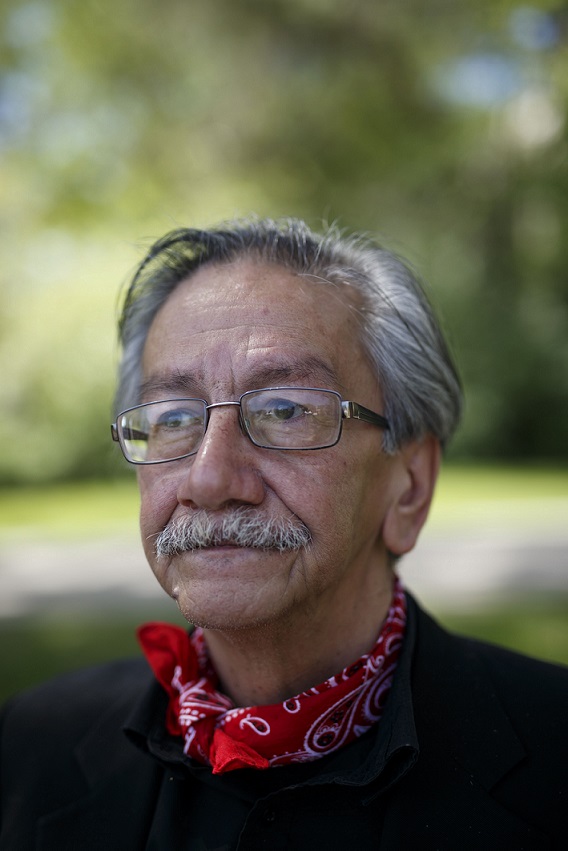
Chief Mistawasis’s Descendant Reflects on Name for Saskatoon’s New Bridge
SENS Indigenous Mentor, Anthony Blair Dreaver Johnston, discusses his family’s legacy
By Victoria SchrammAnthony is the great-great-great grandson of Chief Mistawasis, the historic leader who Saskatoon’s new bridge will be named after. He is also the Indigenous Mentor at the School of Environment and Sustainability (SENS).
The bridge’s name was announced on National Indigenous Peoples Day.
“Chief Mistawasis was like a bridge himself between people, communities, and nations,” said Anthony. “He brought people together.”
The chief spoke on behalf of the people involved in Treaty 6, both First Nations and Métis, and played a major role in its negotiation in 1876.
“Chief Mistawasis saw that the people’s way of life was changing and saw the treaty as a new way for the people to provide for themselves, such as through education. In that way, he was a bridge between generations and centuries,” added Anthony.
Now the name Chief Mistawasis will be immortalized through the new bridge in Saskatoon, which will continue to connect the people of Saskatoon.
“At one time, everyone in this land knew the name Mistawasis,” said Anthony. “I’m glad that people will remember his name again.”
Anthony added, “In the 21st century, we continue to look for new ways to provide for our people and that is largely through partnerships, alliances, and friendships.”
In 2017, Anthony joined SENS as an Indigenous Mentor, where he continues his family’s legacy of bringing people together.
“The Mistawasis Nêhiyawak’s partnership with SENS began with friendship,” he stated. “We shared stories and found ways to work together and now we have many friends at SENS and across the university.”
He likes bringing people from different cultures together so that they can learn from one another.
“I especially enjoy working with the international students at SENS and bringing them to my community. The more I talk with people, and people from overseas who come to the School, the more I realize that we have a lot in common,” said Anthony.
“In very ancient times, all around the world, we all had similar beliefs. We had respect for place, respect for environment, and respect for the land. Today, we’ve lost a lot of that connection to the land, but by sharing stories from around the world, like we do at SENS, we can find a common respect for land and place,” he stated.
Anthony agrees that respect for diversity is key to both reconciliation and to addressing the world’s sustainability problems.
He said, “Each culture, each belief system may have its own way of looking at things, but when we put all those beliefs together, I think that’s where our solutions will come forward for a better future.”

